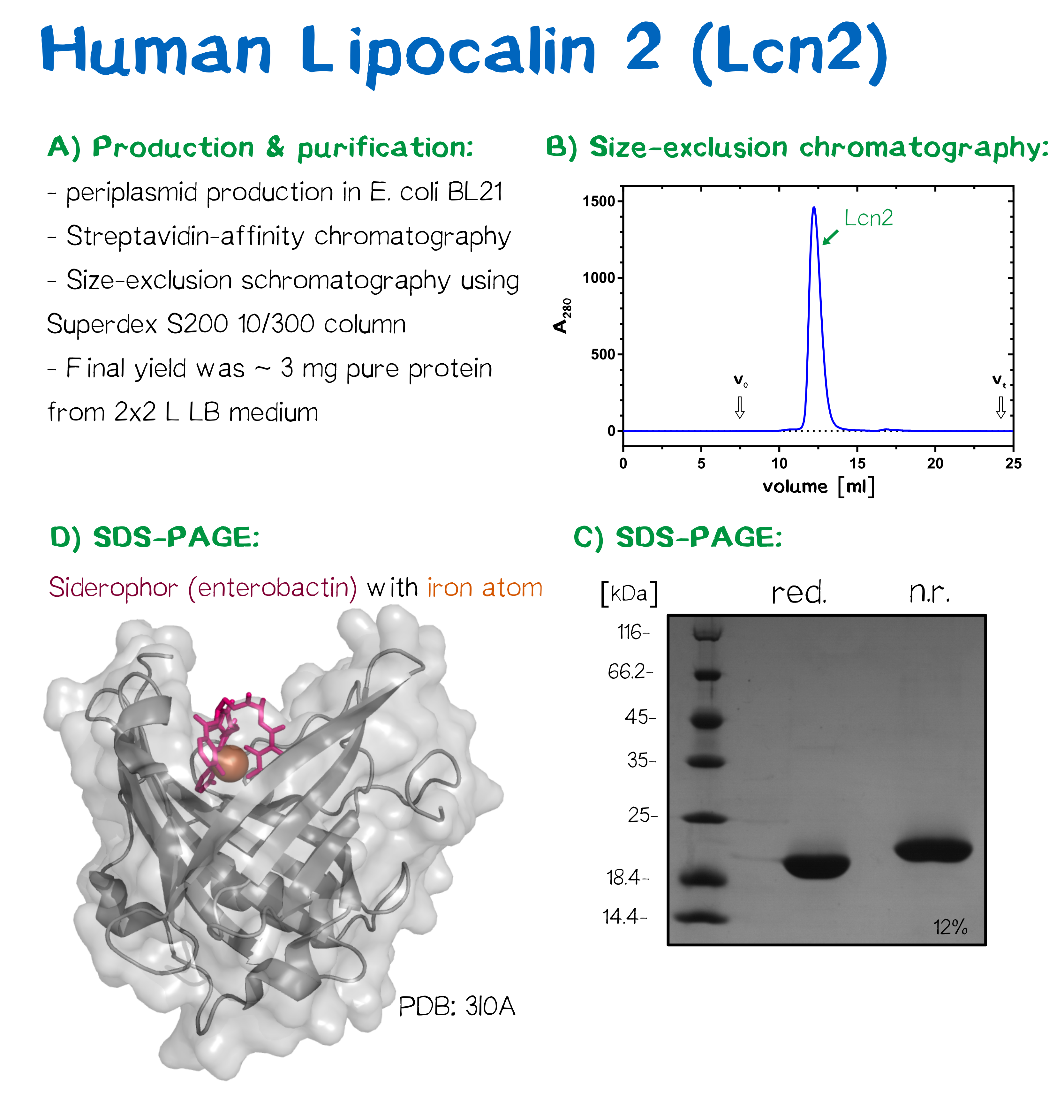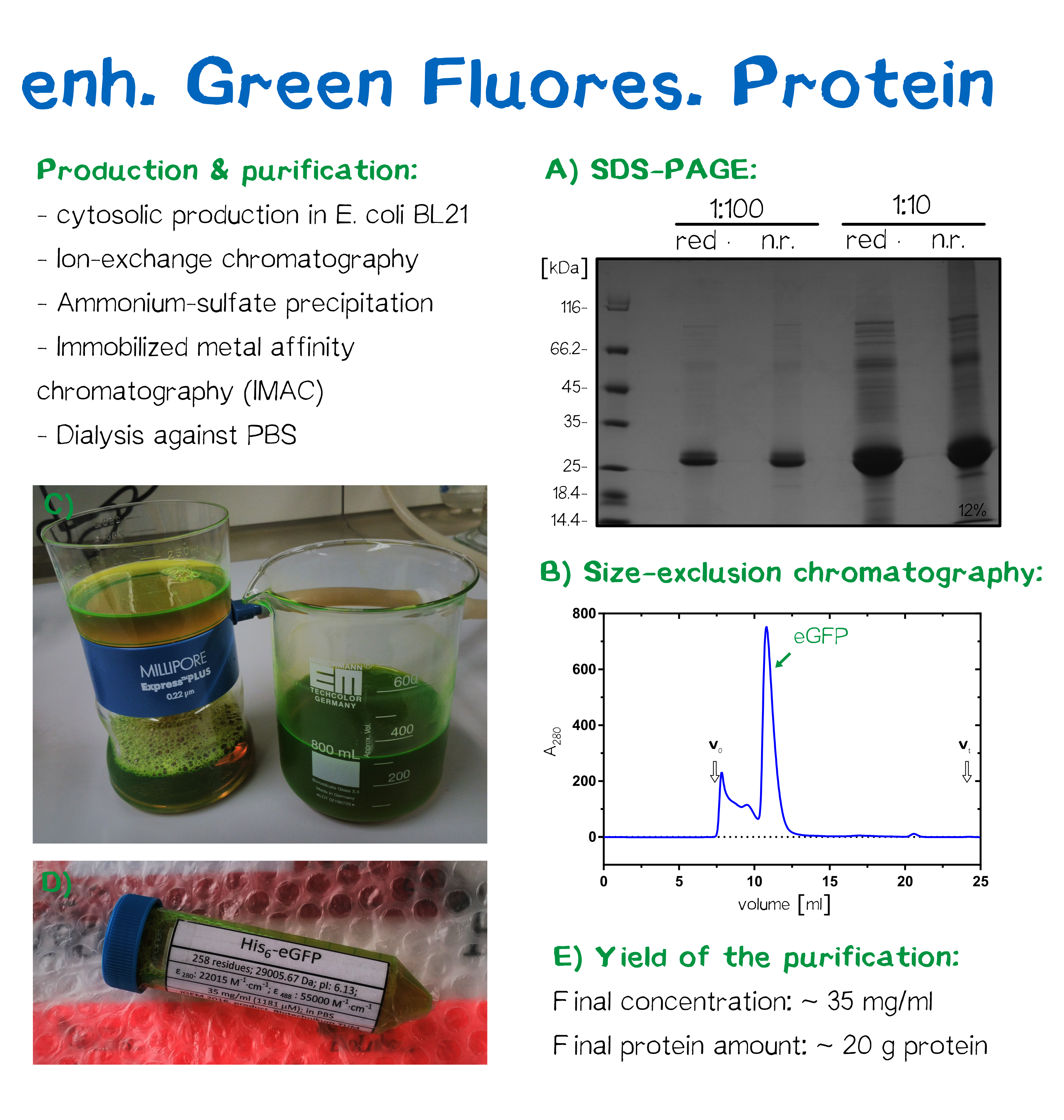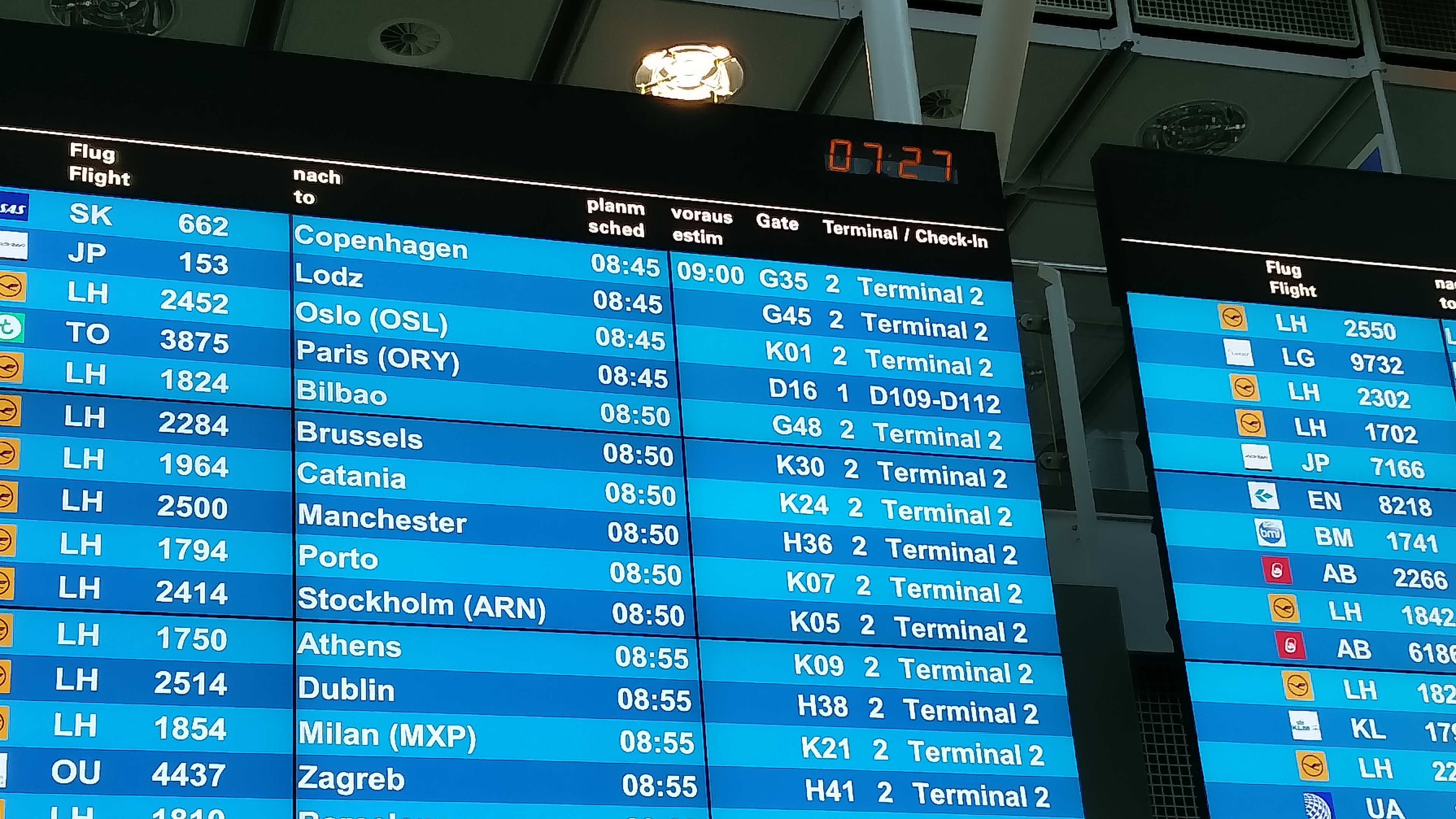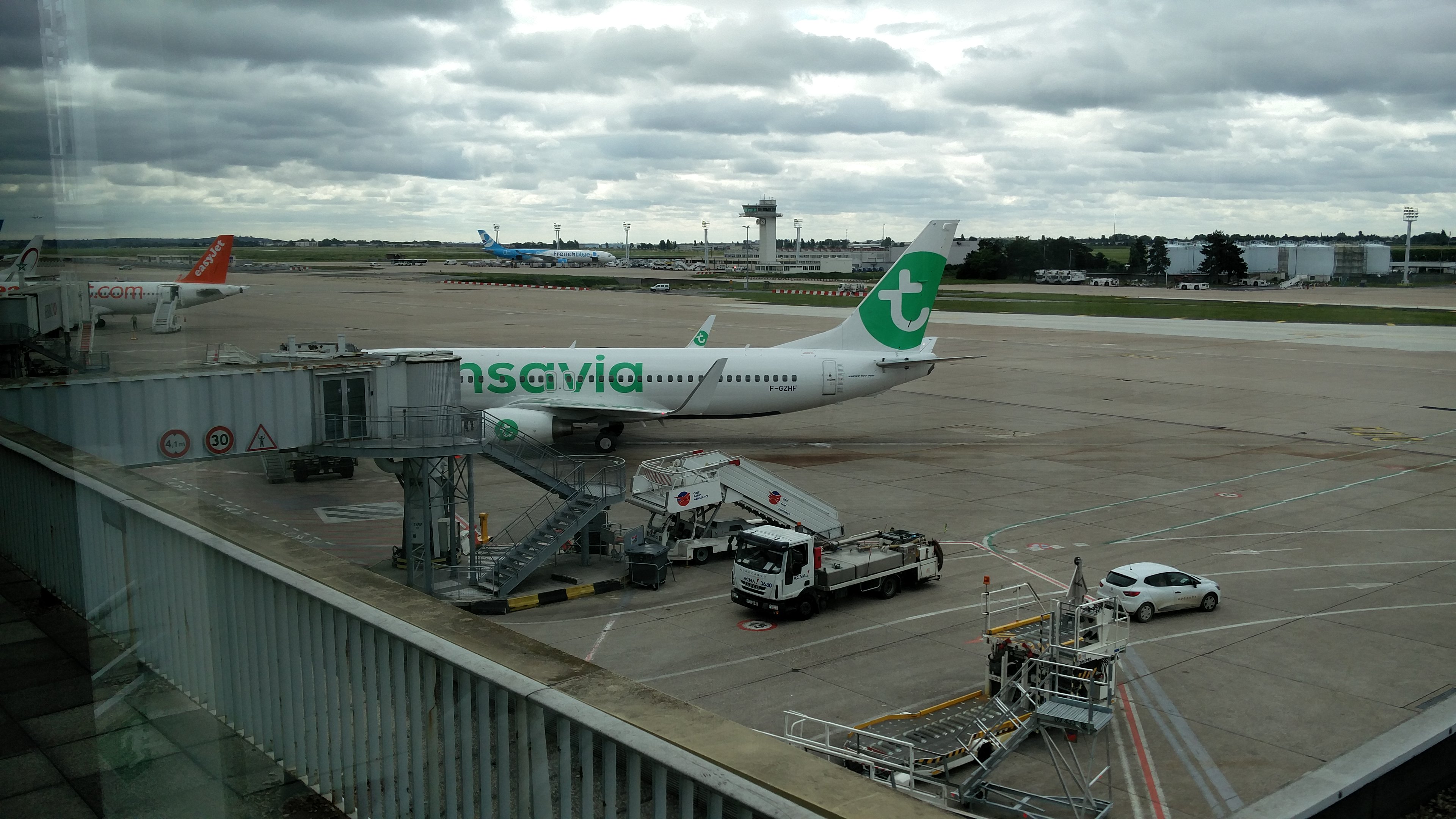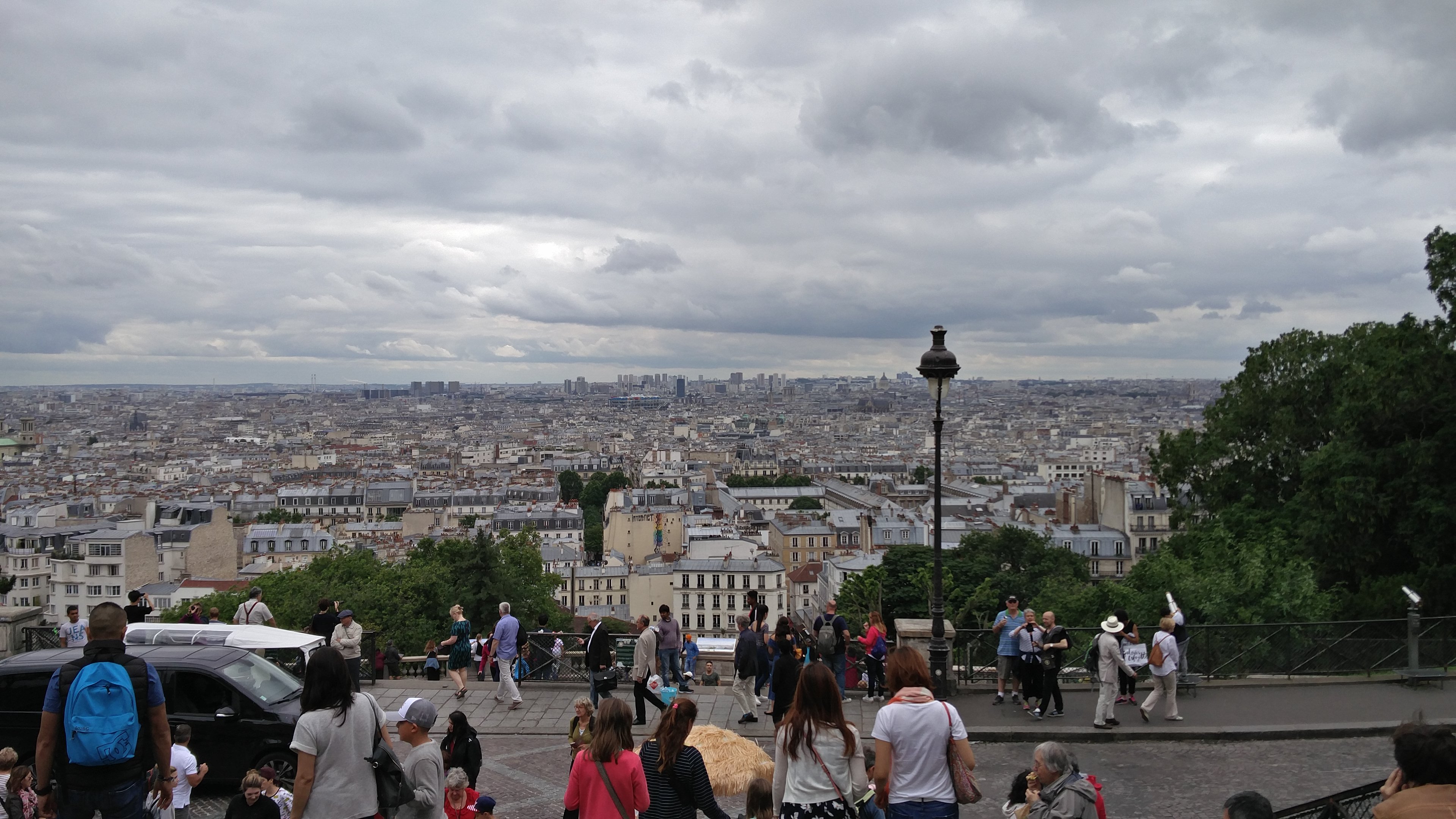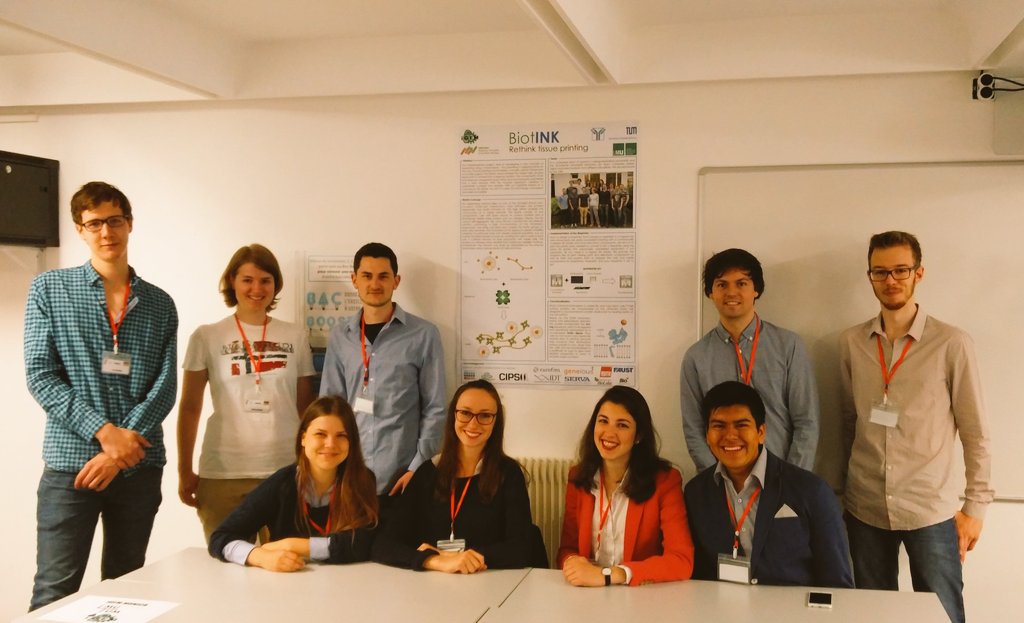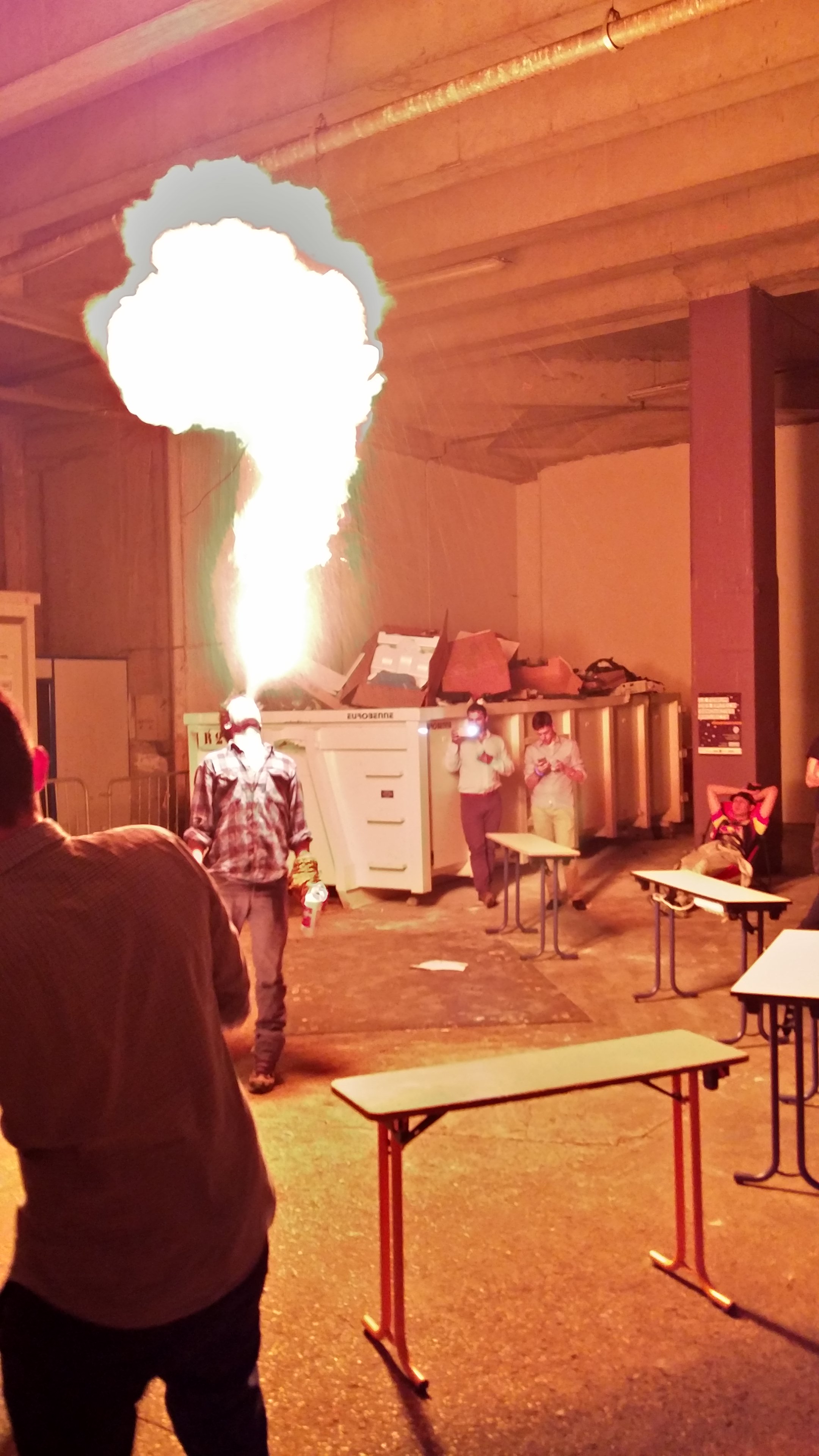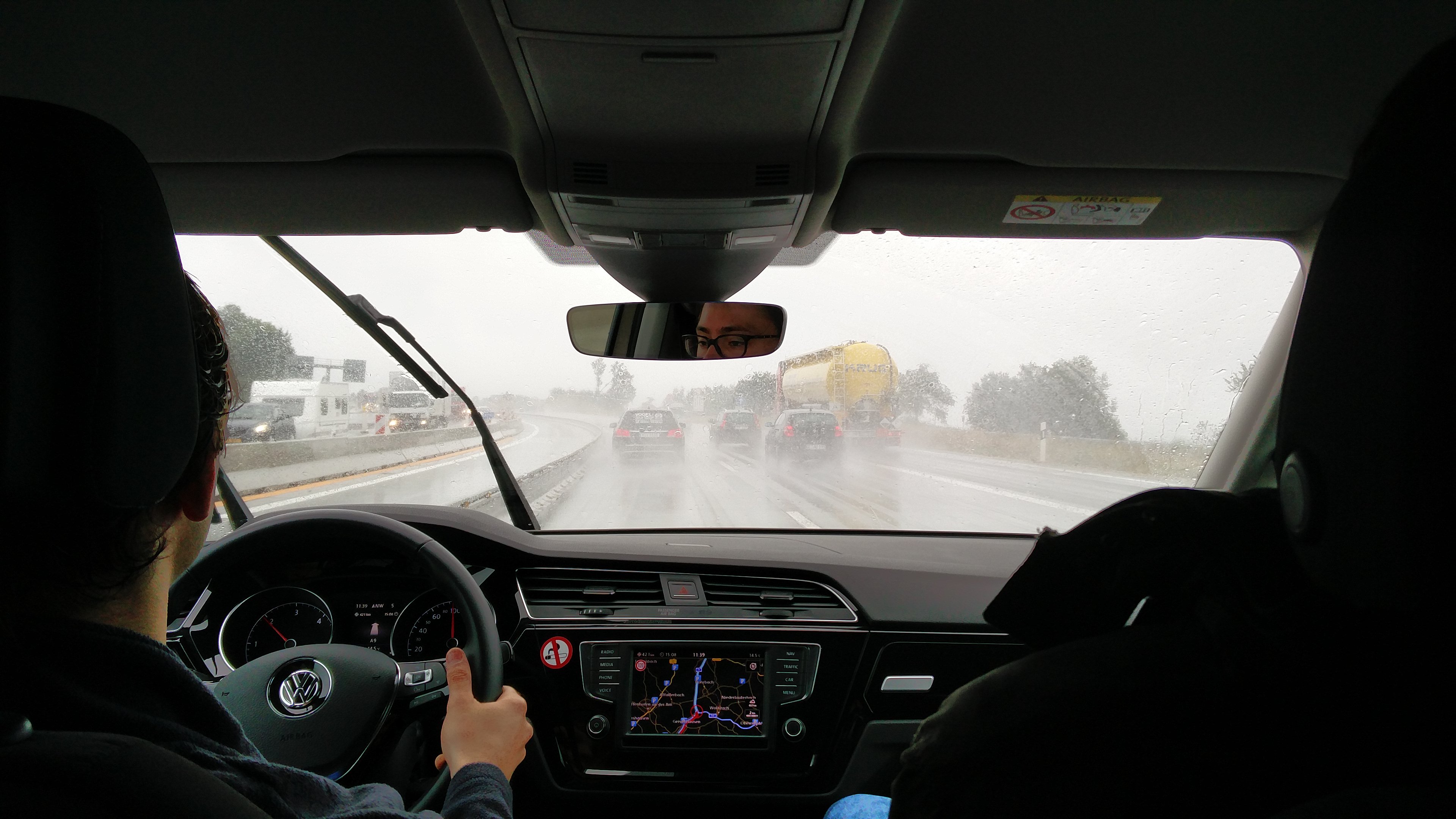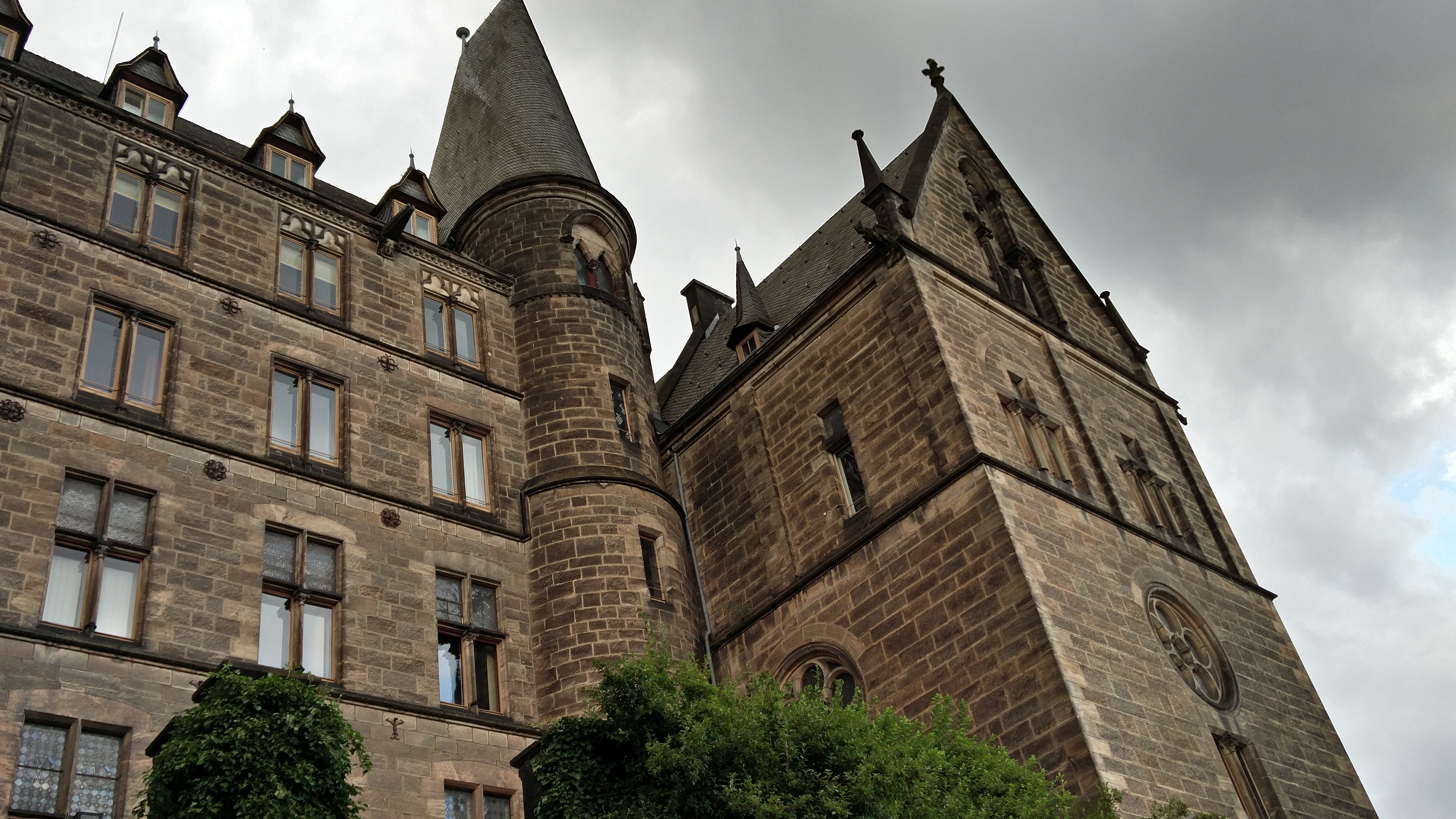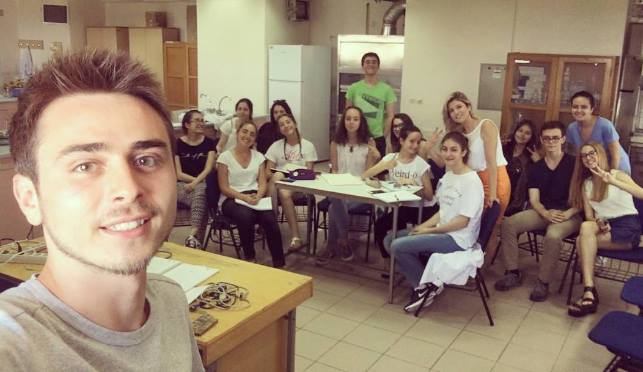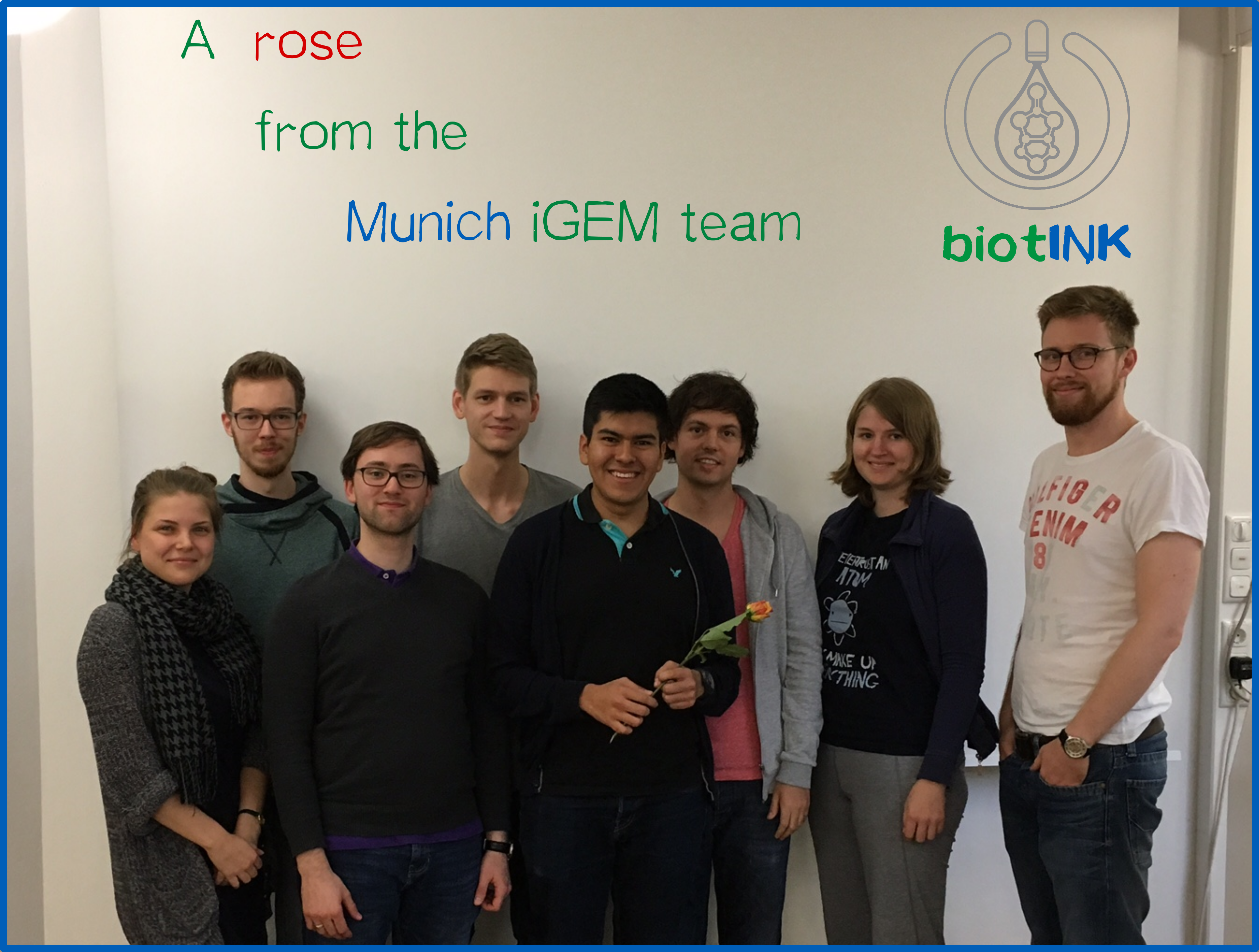(→iGEM meets Marburg, Marburg August 5th to 7th) |
(→iGEM meets Marburg, Marburg August 5th to 7th) |
||
| Line 51: | Line 51: | ||
After some introduction speeches by the sponsors of the event the teams took the stage and presented their projects. As some time had passed since the Paris event we got to see how the ideas developed and of course their were also some we had not seen before. Really awesome! | After some introduction speeches by the sponsors of the event the teams took the stage and presented their projects. As some time had passed since the Paris event we got to see how the ideas developed and of course their were also some we had not seen before. Really awesome! | ||
And after grabbing lunch it was our turn to show what we have been and would be doing in lab. | And after grabbing lunch it was our turn to show what we have been and would be doing in lab. | ||
| − | <html><video width="300" style="float:left; margin : | + | <html><video width="300" style="float:left; margin-right : 10px" autoplay muted loop controls> |
<source src="https://static.igem.org/mediawiki/2016/8/8f/Muc16_Marburg3.mp4" type="video/mp4"> | <source src="https://static.igem.org/mediawiki/2016/8/8f/Muc16_Marburg3.mp4" type="video/mp4"> | ||
Your browser does not support this video player. | Your browser does not support this video player. | ||
Revision as of 13:07, 15 October 2016
Scientific Collaborations
Collaboration with Sheffield iGEM Team
We met the iGEM Team from Sheffield University at the European Experience in Paris where we presented our projects to each other. When the told us that the are using the human Lipocalin 2 (Lcn2) in order to detect the siderophors of pathogenic bacteria, we came up with the idea that we could provide the team with highly pure Lcn2 protein. This was an useful collaboration as the main PI of the Munich iGEM team 2016, Prof. Dr. Arne Skerra, is one of the leading experts in the field of lipocalins[1]. For this reason the expression constructs and the protocols for the production of this recombinant protein are well established in the lab we are affiliated to. The main challenge for the production of the recombinant protein was that the Sheffield iGEM team needed the apo-form of the protein without the bacterial siderophor as they want to scavenge siderophors from samples and analyse the protein afterwards for their concent of siderophors. The challenge here was to produce the recombinant Protein in E. coli in a way that it is no occupied by the siderophor that is produced by most E. coli strains.
Collaboration with Erlangen iGEM Team
The iGEM team from FAU Erlangen is working on the development of a biological photovoltaic solar cell for which they want to use fluorescent proteins to harvest the photons. We saw their presentation at the iGEM Germany meet-up in Marburg and as we are using eGFP anyway for your own project as a purified recombinant protein we proposed to provide them with some eGFP protein for their experiments. Luckily, at the "Biotechnikum" of the TU Munich there is a internship for bioprocess engineering students in every spring in which they produce a large badge of eGFP in E. coli at a bioprocess scale of several hundred liters of culture medium. For our project we were provided with ~ 50 gramm of eGFP that we subsequently purified by ammonium-sulfate precipitation an immobilized metal affinity chromatography (IMAC) and dialyzed the protein finally against PBS. At the beginning of october we provieded 1.4 g of purified eGFP to the FAU Erlangen iGEM team.
Collaboration with TU Darmstadt iGEM Team
In order to get some first feedback The iGEM Team from the TU Darmstadt
Meeting the iGEM community
The European Experience, Paris July 2nd to 3rd
The first big journey for our team lead us all the way to Paris, France.Following the invitation by the teams from iGEM IONIS and Evry we packed our suitcases and off we went.
And after a little climbing tour to Montmartre and maybe some Super-Last-Minute poster printing ;), we settled for the night in our shady "lodging" to be ready to showcase our project for the first time publicly.
Early in morning we headed to the event location. First objective: COFFEE,
which ended to be a great challenge than expected.
Don't bring a knife (instant coffee) to a gun fight (horde of thirsty, tired students) :D
But after breakfast was aquired things started to get interesting. Dozens of awesome projects from all over Europe and even the UK! It was great to see all those ideas and of course to be able to show our bioprinting project to the world. We also got some helpful tips and hints. After the poster sessions was over and food was ingested, some interesting panels on ethics and entrepreneurship in synthetic biology followed before it was time for Randy to drop some final Brexit jokes and end the scientific section of the event.
The evening promised to be a great dance party in "downtown paris" including a live stream of the quarterfinal match of the European Championship between Italy and of course Germany. After this sweat-braking super-tight overly nerve-wrecking game was finally over, with the better end for us :), we hit the dance floor down in the underground car park.
The midnight surprise, breathtaking fire-breather, which for some reason was interrupted by the security guard, I wonder why ;).
With this awesome party night marking the end of the [http://www.facebook.com/events/458143747717965/ European Experience] we used the following Sunday to enjoy a wonderful french breakfast and explore the tourist sites of the "City of Love" before it was time to board the plane back to the lab. What a great event!
iGEM meets Marburg, Marburg August 5th to 7th
Just one month after the European Experience it was time for the next big meetup, the German meetup in the historic city Marburg with its winding streets and steep and tiny alleys.
So instead of boarding a plane we loaded the car and went on a little road trip of 450 km through wind and rain. Luckily weather got better and better the closer we came.Just after arriving at the camp site and setting everything up, the first official point of the program was already in its beginnings: bar tour, yeah! A long and noisy night followed ;)
The next morning the teams from literally all over Germany and extended-Germany, also known as Denmark, assembled at main event building and grabbed some awesome breakfast, including appropriate amounts of coffee, before be welcomed by our great hosts from [http://www.facebook.com/igemmarburg iGEM Marburg].
After some introduction speeches by the sponsors of the event the teams took the stage and presented their projects. As some time had passed since the Paris event we got to see how the ideas developed and of course their were also some we had not seen before. Really awesome!
And after grabbing lunch it was our turn to show what we have been and would be doing in lab.
The afternoon was dedicated to physical activity of a special kind, Bubble Soccer. Probably the most hilarious game ever, though it will drain all your energy. Luckily our hosts had anticipated this and provided us with a tasty BBQ.
Though everyone was a bit tired, the day was far from over as there was the final party of the weekend.
The next morning came way to quickly but luckily it was a beautiful sunny morning. We had the chance to hike to the castle and enjoy the amazing view from the top before it was again time to say Goodbye for a while and hit the road back to the lab.
Thanks again Marburg for having us, it was a pleasure!
Helping other iGEM teams
iGEM experiment protocols in all languages by the METU HS Ankara iGEM team
This years team of Highschool students from Ankara came in touch with us and asked for help for their clever idea of translating the standard iGEM lab protocols into different languages. This will hopefully help future teams from all around the globe to better understand them and apply them in the lab without being required to understand English perfectly. Especially other future Highschool teams should profit from this.
We are happy to be part such a great project and make iGEM even more international.
65 roses campaign by the iGEM team Tel Hai (Israel)
As part of their project dealing with XXX the team from to raise awareness for the life-shortening genetic condition cystic fibrosis. The disease ..... After .,... mispronauncing the disease the name 65roses stuck to support the Betroffenen and help them create a better public understanding of it. It was a pleasure helping their noble cause.
__The “65 Roses” story dates back to 1965 when an observant 4-year-old, hearing the name of his disease for the first time, pronounced cystic fibrosis as "65 Roses." Today, “65 Roses” is a term often used by young children with cystic fibrosis to pronounce the name of their disease.___https://www.cff.org/About-Us/About-the-Cystic-Fibrosis-Foundation/The-65-Roses-Story/
Biobricks for the world
Due to the history of interesting projects from Munich it did not take long for the first Biobricks request coming from all over the world.
Vive le France!
The first inquiry came from our cave saving of colleagues from XXXX
The far east
Not long after a more distant call reached us all the way from XXX
References
- ↑ Schiefner, A., & Skerra, A. (2015). The menagerie of human lipocalins: a natural protein scaffold for molecular recognition of physiological compounds. Accounts of chemical research, 48(4), 976-985.


